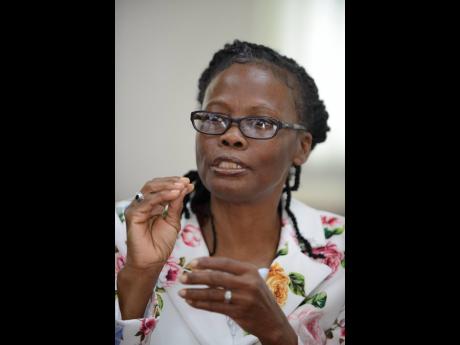Editors' Forum | No-user-fee policy bogging down health sector, say experts
Heath professionals are urging the Government to review the no-user-fee policy for public health institutions as a shortage of funds is restricting the range and quality of services many facilities can provide.
Speaking at a recent Gleaner Editors’ Forum, Professor Wendel Abel, head of the Department of Community Health and Psychiatry at The University of the West Indies, Mona, said the policy presents a lot of challenges, especially for women and children.
“The no-user-fee policy has clearly not served us well. We know women are among the highest consumers of healthcare in the country, what was highlighted is that because of the challenges associated with user-fee policies, out-of-pocket expenses still remain very high, 28 per cent in Jamaica, and therefore present a challenge for 15 per cent of Jamaicans.
“What the international data indicate is that when your out-of-pocket expenses are greater than 20 per cent, it creates dire consequence and impact and challenges for families and communities. So we laud the efforts of the Ministry of Health [and Wellness] in putting out this Green Paper (National Health Insurance Plan for Jamaica), and we also commend them for stimulating discussion, but we are also calling for the implementation of a comprehensive health-insurance plan as quickly as possible,” said Abel.
INSUFFICIENT FUNDS
He argued that with the no-user-fee policy, the funds are not able to adequately cover and to offer a comprehensive range of services.
“We really need to look at it. I think it is hurting in the long run and the world is moving away from that. When you look, for example, at core issues such as non-nationals, because of the current policy, non-nationals can access our healthcare, or middle-class people even with insurance, so sometimes the no-user-fee policy subsidises the insurance companies because some people who should be paying are not paying. Whereas, we know, for example, in today’s world, when you travelling to other countries, you have to purchase a travel insurance. People come on the island and use the services so when they are competing with the vulnerable people for these services, then the implication is that it can’t stretch to cover everybody,” said Abel.
President of the Nurses’ Association of Jamaica (NAJ), Carmen Johnson, agrees that the funds allocated are not sufficient to run the system effectively.
“It is a good thought process. It is well[-intentioned] thinking to meet the needs of those whose needs they meet, but really and truly, what needs to be offered to those who really need the assistance to access the level of care that they need is non-existent, and again, the accessibility of the service [is another challenge]. It takes them hours to get through, so the waiting period is very long, and so you say to everybody, ‘Come in to enjoy’, but the meal is not sufficient to serve everybody,” said Johnson.
IMPROVEMENTS
She added that some improvements would be seen if there was at least a minimal fee for some services.
“When they were charging the minimal fees, you find that that was a part of the institution’s budget, where it would fall as a percentage of what the funds are for them to manage, and so you would be better able to buy some of the resources that you would normally purchase to suffice meeting that need of the populace. So now what you have is a full dependence on the amount that you get from central government, and that can do only so much and no more, because, again, it’s shared up for the whole sector. Whereas, first time, a portion of your user fee served to be a portion of your budgetary allocation,” said Johnson.
Advocacy specialist Linnette Vassell added that “in a context where you only have about 3.5 per cent of the GDP going to health, when it is required that you should have at least six per cent, it requires an all-of-Government approach” to adequately fund the public health sector.
User fees were abolished in the public health sector in 2007 for children and in 2008, free healthcare was introduced for all users of the public health system.


